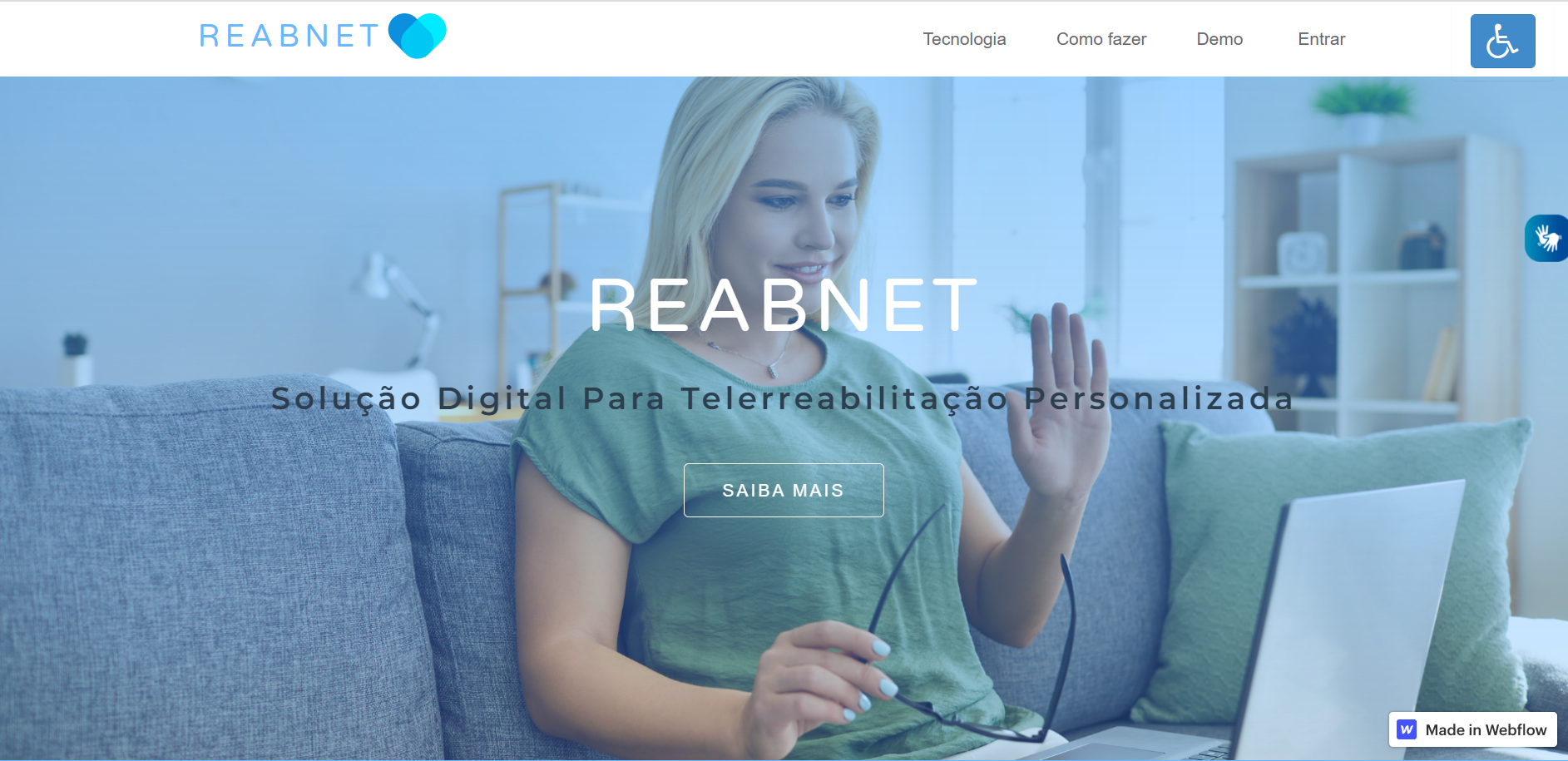RNP's Advanced Services Program WG develops platform for telerehabilitation
The demand for telerehabilitation grows as the need for rehabilitation increases, and the number of professionals and services in the area does not grow in the same proportion, and the territorial distribution of these services no longer meets the current demand. Several factors have pressured the increase in the size of this market: population aging, increased prevalence of chronic diseases, the population's preference for remote care, difficulty or impossibility of displacement, among others.
In this context, the ReabNet Advanced Services Program Working Group aims to develop and offer the health market a telerehabilitation platform that provides remote rehabilitation services, through virtual and augmented reality, and through the use of communication networks and Internet. So, the ReabNet platform will provide the Brazilian population with a range of remote rehabilitation products and services to benefit people with functional limitations (temporary or otherwise) who need these therapies to recover/improve their condition.
The initiative's mission is to facilitate access for people with functional limitations to health services, through a single digital platform, from any location. Also, professionals who work with rehabilitation therapies (physiotherapists, physical educators, occupational therapists, physicians, etc.) will benefit, as well as hospitals and rehabilitation clinics, since they will be able to provide their services remotely using systems designed to assist in rehabilitation therapies incorporated into the platform.
The project is in the MVP (Minimum Viable Product) state, where the basic features of the tool are developed. This stage aims to carry out a concept test and verify how viable the proposal is as a product for the market.
“The team members have followed the trajectory of competing products and technologies in order to study the best business strategies and which technologies can be incorporated into ReabNet in future iterations. We plan to scale our technological infrastructure, adopting the cloud and other solutions that reduce costs and offer more flexibility for data use”, says the coordinator of the WG, Eduardo Naves, from the Federal University of Uberlândia (UFU).
The platform's basic functionalities have already been developed and are available on the ReabNet portal (http://reabnet.com). One of the main innovations is the prescription of therapeutic sessions focused on the use of exergames, that is, games that use virtual reality to encourage movement and increase patient interaction with the rehabilitation activity.
“At the moment, we are using an exergame to learn how to drive a motorized wheelchair, where the user can train different skills in a safe and controlled environment. Other activity modules should be included in the platform, according to the demand and direction of the team's work”, comments the coordinator.
The use of gamification with virtual reality is one of the differentials in relation to competitors, which mostly provide telehealth services. Another differential is the application of the ICF during patient care, which allows better guidance to the health professional to define which activities need to be carried out to rehabilitate that patient, not based only on the ICD (International Classification of Disease), but other factors that are part of the human being (biopsychosocial factors).
“The results of the research developed by WG-ReabNet in this first phase of the project are very promising. Thus, in the second phase of project development, we expect to carry out tests with early-adopters of the RNP system, with the aim of validating the triage, teleassistance and telemonitoring modules for the patient”. According to Eduardo, both are expected to be implemented on the ReabNet platform in 2023.
Telerehabilitation as part of smart homes and cities
The trend is for telerehabilitation to be integrated with smart homes in smart cities. Functional monitoring with sensors in the environment and furniture, and wearables are already a reality. The integration of smart rehabilitation appliances needs to be contextual. Assistive robots, smart wheelchairs, prosthetic limb controls, home automation systems, and in-home AI chat-bot companions will add value by providing "smarter care".
A testament to this expansion is the estimate that the telerehabilitation market is expected to reach $9.13 billion by 2027, according to the Telerehabilitation Systems Market 2020-2024 report. Therefore, the market presents an urgent demand for a solution like Reabnet. ReabNet's services will aim to have rehabilitation services provided by RNP as early adopters.
Soon, Reabnet will be made available to the health services team using RNP for free use. The idea is that early adopters are interested in collaboratively developing, free of charge, health/rehabilitation education content for patients, and another for professionals; and some of the digitized therapeutic protocols/programs that will be incorporated into the platform, according to the expertise of each service.
